Opinion
EKITI 2022: Time to Place High Premium On Reward Mechanism
Published
3 years agoon
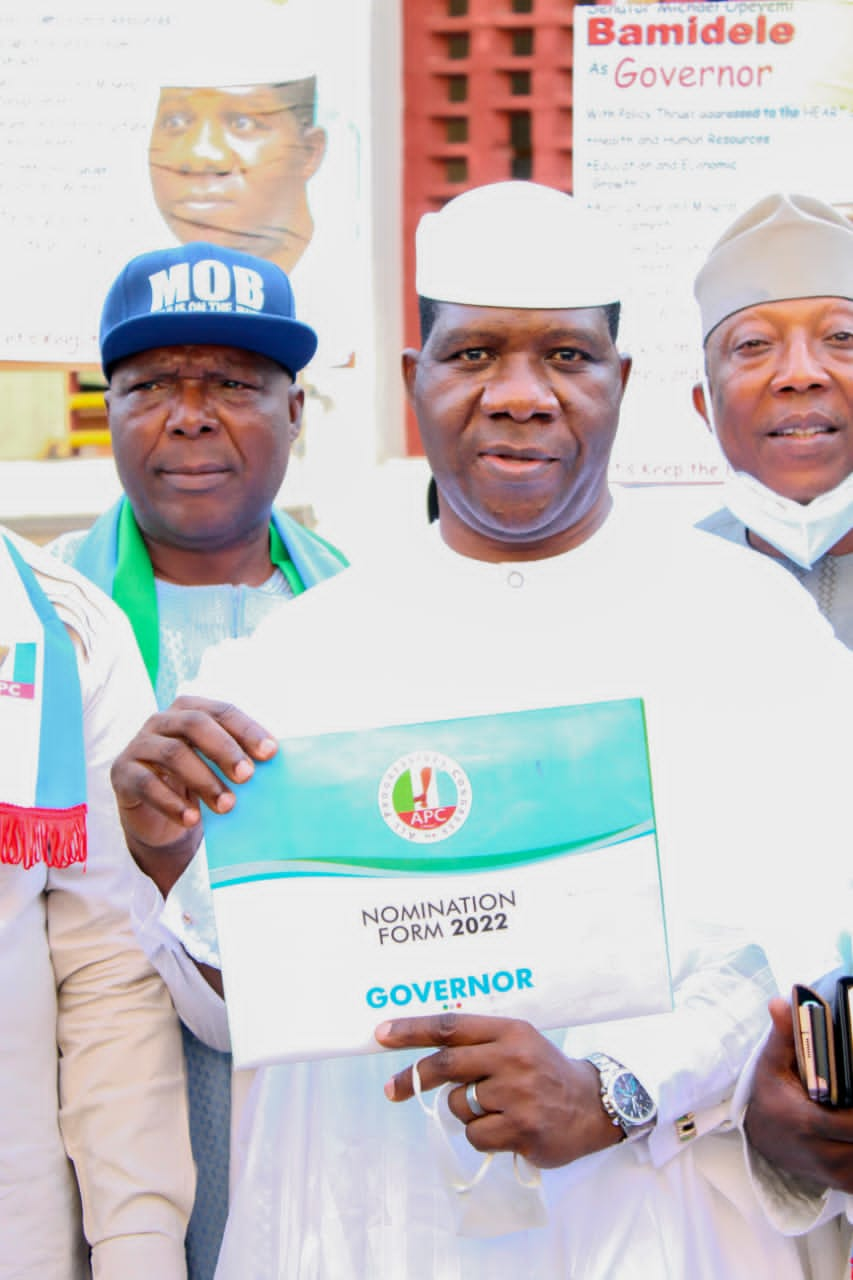
By Ahmed Salami
Without any further change in date, come January 27, members of the All Progressives Congress in Ekitii state will file out to elect their candidate for the June 18 governorship poll. This is one action that is expected to be decisive, dispassionate and accurate to avert repeat of the past mistakes.
An ardent and inquisitive follower of the trajectory of political participation of the progressive party through many of its metamorphosis in Ekiti, would decipher that the APC is now confronted with the confounding issue of either allowing a repeat of the sordid past or break the continuity jinx that had been found unattainable since 1999.
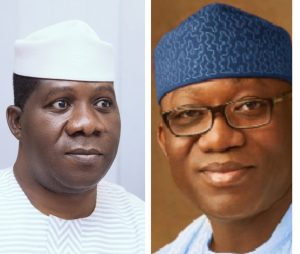
Senator Michael Opeyemi Bamidele and Governor Kayode Fayemi
Going by history, this is the third time the party is faced with taking critical decision regarding succession in politcs. It is expected that members should get it right by not being impetuous, emotional and arbitrary in taking actions.
The first time this situation happened was under Otunba Niyi Adebayo in 2003. The party failed in the succession battle and the scar was so deep that it trailed the party for seven years for it to get healed.
The second time was in 2014, when Governor Kayode Fayemi was seeking reelection. The party again failed in the succession bid before staging a dramatic return in 2018.
The 2022 therefore affords the opportunity to again test the party’s might and dexterity to be able to respond to situation and make a success of it. That makes any decision taken on January 27 so pivotal either to the success of the party or its undoing .
The party members are now burdened by the crisis of how to make an option among the array of contestants that have shown interest for the plum seat and the best that can serve the interest of the party and boost the realisation of the succession is the Senator representing Ekiti Central, Senator Michael Opeyemi Bamidele (MOB)
In the coming election, APC shouldn’t take Ekiti people for a ride or underrate their ability to act strange again as they did in 2003 and 2007.
Ekiti is a closely knitted enclave and they take political decision almost in unison. Once the decision is taken in Ado Ekiti, it reverberates to all the other towns and that makes it expedient for APC members to listen to the opinion in town and feel the mood of the people.
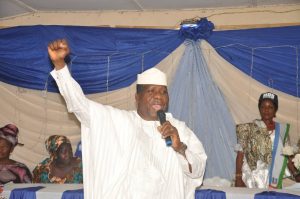
Senator Michael Opeyemi Bamidele
Without trying to Lord my opinion on the party, let there be conduct of an independent opinion poll today for APC members, one would realise that Ekiti people are largely for Senator Michael Opeyemi Bamidele.
Governorship is not won in Ekiti without a rich history of political participation. In 1999, Otunba Niyi Adebayo was able to weather the storm by riding on his father’s crest to stardom. We could all attest to how the late Major General Adeyinka Adebayo opened up Ekiti as the Governor of the old Western Region . This actually buoyed his son’s popularity and acceptability in the 1999 election.
Even in PDP, former Governor Ayodele Fayose was busy traversing every nook and cranny of Ekiti for three and half years offering many services to Ekiti people before he became a household name and won the 2003 election.
The incumbent governor, Dr Kayode Fayemi, became so loved and popular among Ekiti people because of his industry, dexterity and steadfastness in the way he prosecuted the judicial war against the PDP for three and half years before he was accepted by the electorate. By history and action, Ekiti people loved those who made cognate sacrifices for a course or people before gaining relevance.
Except we are deceiving ourselves, MOB remains the only aspirant in APC, who has contributed so hard and had made the right sacrifices for his name to be resonating across Ekiti.
Since 2003, he has been one of few financing the party and making the right connections with traditional rulers, religious leaders, youth groups, party leaders and ordinary Ekiti to galvanise support for APC.
Except the party no longer values members’ contributions, they shouldn’t have forgotten by now how MOB saved them from disgrace and opprobrium after losing in 2003. It became a slogan at a point for Fayose while deriding the APC that the party would soon go into oblivion, because no strong financial backing. But Senator Bamidele came and removed the derision completely.
In one swell swoop, Senator Bamidele in 2010 donated seven buses to the then Action Congress in one day when the ruling PDP could not boast of any. This substantiated how committed and loyal he has been to the progressive party.
The most memorable of his contributions was how he was shot in 2018 while fighting with Governor Kayode Fayemi to relaunch APC back to reckoning in Ekiti. He had a close shave with death and was saved through divine intervention. Against all odds, the party went ahead and defeated the PDP, which was the ruling party then.
While in Lagos as a Commissioner, his office was like a rendezvous for Ekiti indigenes, especially members of his political party. He used the opportunity to facilitate contracts for them among other helps to improve their wellbeings and ensured their stay in the progressive fold.
As a member of House of Representatives between 2011 and 2015, Senator Bamidele facilitated over 90 projects to his Ado/Irepodun/Ifelodun federal constituency, while also helping over 100 graduate to secure jobs among over 3,000 constituents he empowered through skills acquisition.
This time now, he has promised that he would uplift the party and bring a paradigm shift to the economic facet of Ekiti, through job creation, encouragement of commercial farming, fighting corruption and allow the party members take absolute ownership of the party for the benefit of all if given the ticket.
To corroborate the fact that he has the knack to actualise the foregoing, the Senator had in two years at the Senate sponsored bills to attract two higher institutions to Ekiti as a representative of the people.
Since he began his campaign, he has not abused anyone. He even made it clear that his friendship with Governor Fayemi remains inseparable. This signposted that he was not desperate to get the ticket through crook or do or die means.
On the impending party primary, Bamidele said: “APC members must open their eyes very well. We must not allow ourselves to be enslaved to moneybags. We shouldn’t allow anyone to enslave us or buy our conscience, so that they can perpetually hold us hostage.
“Let us vote for a candidate that can win election easily. One that is acceptable to Ekiti in terms of character, integrity, competence and trust. A governor that can uplift Ekiti and bring positive change. Someone who can earn Ekiti the expected respect and one who won’t act as an opportunist”.
Senator Bamidele is a global citizen, who has carved a niche for himself as one politician with focus on selfless service delivery and attraction of democracy dividends to the poor citizens to upgrade their standards of living.
He has provided scholarship for thousands of Ekiti undergraduates and post graduate students, generate employments for many graduates, empowers widows, women, and unemployed youth for self-independence.
Without being exaggerative, as of today, Senator Bamidele has provided trainings in blockmaking, fishery, confectionaries,
poultry, soap making, sewing and others to over 4,000 constitutents in Ekiti Central. The records are there and those feeling skeptical can check all these facts.”
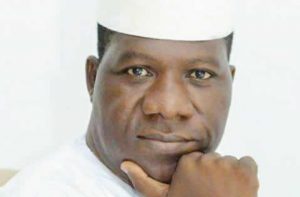
Senator Michael Opeyemi Bamidele
Without sounding immodest, Senator Bamidele deserves the ticket, because he is the most experienced among the APC aspirants and the highest financier of the party during the time of lull.
This is the time to repay good with goodness. Time to show that APC places high premium on reward mechanism to serve as morale booster to members. They should reward this man with the governorship ticket this time to show that good deeds and loyalty to a party have a huge gain.
Ahmed Salami, A.
Media Consultant and Political Analyst writes from Abuja
You may like
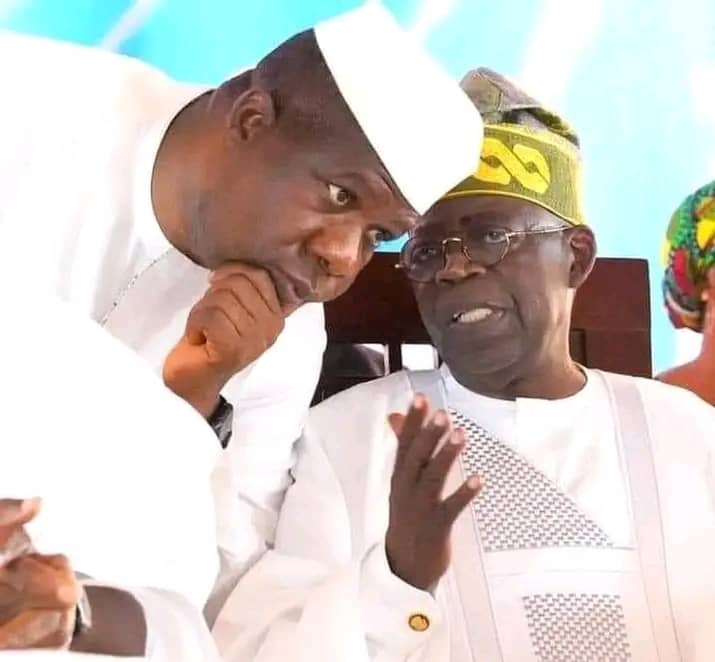
By Senator Opeyemi Bamidele, CON
Today, I celebrate a timeless doyen of democracy and an astute mentor of many leaders, President Bola Ahmed Tinubu, GCFR. By global standards, Asiwaju is truly a man of the people and the visionary of our times, who devoted his life to pursuing the greatest goods to the greatest number of people. This has been the core of his heart and life from when he was a boardroom guru in the 1980s to when he joined partisan politics in the 1990s.
Born on March 29, 1952, Asiwaju’s foray into politics in 1991 was never a mistake, though it came with a huge sacrifice that cost dearly. As a Senator of the Federal Republic of Nigeria, I celebrate how Asiwaju firmly stood with the people rather than dining with the military oligarchy that annulled the outcome of the June 12, 1993 presidential election ostensibly won by Chief M.K.O Abiola (now of blessed memory), an annulment that set our fatherland back to the pre-colonial era.
I also celebrate how Asiwaju teamed up with the progressives to establish the National Democratic Coalition, a movement of likeminds and progressives that fiercely challenged the regime of the late tyrant, General Sani Abacha; mobilised support for the restoration of democracy to our fatherland and campaigned for the recognition of Chief M.K.O Abiola as the winner of the June 12 presidential election. And this conviction and pursuit eventually earned him exile from the land of his birth. Yet, he was undaunted in his quest to see his fatherland liberated from the era of locusts that pitched us against the comity of nations.
I celebrate how Asiwaju returned to Nigeria in 1998 when the darkest era of the late tyrant finally folded into the abyss of extinction after fighting doggedly on the side of the people. The end of the dark era culminated in his election as the third civilian governor of Lagos State in January 1999. Though faced with diverse heinous challenges at the inception, Asiwaju came out strong and victorious, setting Lagos on the path of irreversible progress, reforming the coastal state to a globally competitive smart city and turning it to a constant destination of strategic investment. And the world can no more look away from Nigeria just because of the pro-people reforms he carried out in Lagos.
Asiwaju’s quest for the greatest goods for the greatest number of people pushed him to national politics, the kind of venture that consumed the nationalists and patriots who lived before him. At different times, he challenged the traditional forces that held our fatherland down. He first fought for the soul of our fatherland on the platform of the defunct Action Congress, and it did not entirely produce an enviable outcome. He later switched to the Action Congress of Nigeria, and banished the regressive elements from the six states of the South-west. Full of hope, Asiwaju stressed forth his hands across Benue and Niger, and together, they rescued Nigeria from the hands of the regressives.
At 72, as the President of Nigeria, Asiwaju has brought rare conviction and passion to the business of public governance, courageously daring the forces of regression and tirelessly pursuing the interests of over 227 million regardless of their faith, ideology and race. The task is truly daunting, but the victory is undoubted. Only within 10 months of Asiwaju’s ascendancy to the presidency, we have started witnessing the dawning of economic restoration and the ray of political renaissance under his watch.
As I nostalgically reflect on the journey so far, I remember his labour and toiling for our fatherland, even when most misunderstood. I remember his undying passion to lead the path to a greater nation, even when the future looks so bleak and always unsure. I remember his utter commitment to a movement of patriots and progressives eternally sworn to rescue our fatherland from the claws of the ageless vultures and the blood-thirst beaks of mindless hawks that always seek to feast on the flesh of Nigeria. Despite their ferocity, he eventually subdued the enemies of our souls, even right in the midst of inferno they set ablaze for us all.
That is the reality in our fatherland today. Asiwaju is at the forefront of that reality. And we are all witnesses to this history, even from its making to its maturation. Now, as he graciously turns 72 on this auspicious day, I cannot, but earnestly pray God grants him longer life and inner strength to steadily paddle the ship of our nation to the coast of endless ecstasy.
Heartiest 72nd Birthday, my leader and mentor.
- Bamidele, Leader of the 10th Senate, writes from Abuja
Opinion
Chronicling Deputy Senate President Barau’s 100 days of parliamentary excellence
Published
1 year agoon
September 18, 2023By
News Editor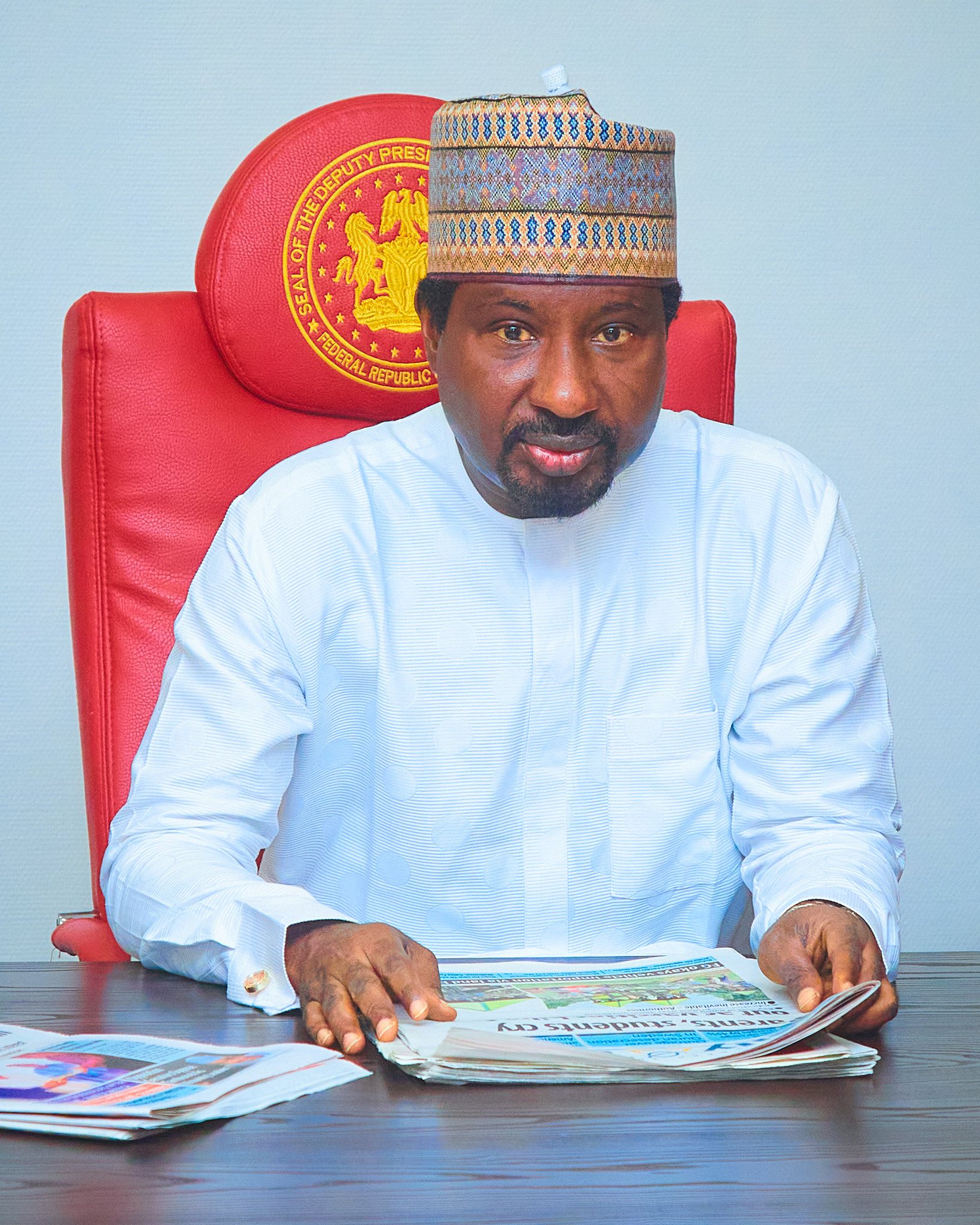
By Ismail Mudashir
Tomorrow, Wednesday, September 20, 2023, the 10th Senate will mark its first 100 days following its inauguration on June 13, this year.
The inauguration of the parliament followed President Bola Ahmed Tinubu’s proclamation, via a letter to the Clerk to the National Assembly, Sani Magaji Tambawal, in line with Section 64(3) of the 1999 Constitution.
The first duty of the senators was the election of the presiding officers – the President of the Senate and the Deputy Senate President. After a keen contest, Senator Godswill Akpabio, from Akwa Ibom State, emerged as the President of the Senate, defeating Senator Abdulaziz Yari, a former governor of Zamfara State.
Apparently, because of his rare personality traits, Senator Barau I. Jibrin, a fourth timer at the National Assembly (three times in the Senate – 2015 to date and once in the House of Representatives – 1999 -2003) emerged as the Deputy President of the Senate unopposed as all his colleagues threw their weight behind him.
Three weeks after the emergence of the two presiding officers, eight principal officers were named, thus the leadership of the 10th Senate was duly constituted. With the constitution of the leadership, the lawmakers got the parliamentary work started as urged by the President of the Senate, Senator Akpabio, in his speech on July 4, 2023, titled, “Let’s get the work started.”
On July 6, Senator Barau, for the first time, presided over the plenary session. During the session, five motions were moved including the one on Mallam Aminu Kano International Airport, Kano.
After the July 6 session which attracted applause from across the Red Chamber and beyond, Senator Barau had presided over the plenary on other occasions in the absence of the President of the Senate in the last 100 days.
Among the critical motions sponsored by the Deputy President of the Senate during the period under review was the one on the poor state of road infrastructure and the menace of gully erosion in the country. Also to his credit was a motion on the emergence of President Tinubu as the Chairman of the Economic Community of West African States (ECOWAS).
Four bills of the Deputy President of the Senate, including the one on the creation of a development commission to fast-track the development of the country, have been introduced at the Red Chamber.
* Balanced appointments
Recognizing the heterogeneous nature of the country, the Deputy Senate President selected his seven key appointees from across the country – four were drawn from Kano State – two from the southern part of the country – Oyo and Imo states, and one from Kwara State – North Central geopolitical zone.
The appointees who hail from Kano State include the Chief of Staff, Professor Muhammad Ibn Abdullahi; the Special Adviser (Policy & Monitoring), Professor Bashir Muhammad Fagge; the Special Adviser (Political), Yusuf Aliyu Tumfafi and the Special Assistant (Media & Publicity), Shitu Madaki Kunchi.
The Special Adviser (Media & Publicity), Ismail Mudashir, hails from Kwara State; the Special Adviser (Special Duties), Idris Abiola Ajimobi, Oyo State; and the Special Adviser (Administration), Mrs. Ngozi Ndawi Nkemdirim, from Imo State.
Commendations have followed what has been described by lawmakers, media practitioners, civil society organisations, and other stakeholders in the country as balanced appointments.
* Constituents driven representation
For Senator Barau, his representation has been constituents and pro-masses driven. Hence the unfettered access he grants to people from Kano North, Kano State, and beyond; the old, young, rich, and poor; APC members and members of other parties.
For instance, in August, he instituted a scholarship programme through which hundreds of tertiary institution students from Kano North Senatorial District were given N50,000 each. The programme was flagged off at Bayero University Kano (BUK).
Before the scholarship scheme, the Deputy President of the Senate had paid WAEC and NECO fees for hundreds of secondary school students.
To boost agriculture in the state, Senator Barau also distributed fertiliser to farmers across the 44 local government areas of the state.
According to beneficiaries, this initiative would enhance their output and contribute towards attaining food security in the state and country.
On September 6, the people of Rimindako community in Bagwai LGA of Kano State, through a human rights activist, Barrister Muhammad Zubair, lauded the Deputy President of the Senate over the construction of Yasanya bridge and access road in their community.
· Visits Abuja Industrial Park
On the invitation of the Zeberced Group, the Deputy President of the Senate was at the Abuja Industrial Park located in the Idu Industrial District on September 4. Sitting on 245 hectares of land, the park will house 200 factories, a helipad, a train station, a lorry park, a bank, a recycling station and a power plant, among others when completed.
The park is an initiative of the Zeberced Group, jointly founded by Adil Aydin Kurt and Cemal Kurt from Turkey. The company’s Managing Director, Aidl Aydin Kurt, conducted Senator Barau around the project. Kurt told his visitor that the project when completed will provide 40,000 direct jobs to Nigerians.
Moved by the 40,000 jobs to be created , Senator Barau said the parliament would provide the necessary legislative support to the company, saying the project was in line with the commitment of the federal government to address unemployment, boost and diversify the country’s economy.
* Keeping parliament alive during recess
Even with the annual recess embarked upon by the parliament on August 7, the office of the Deputy President of the Senate has been active, five days a week (Mondays – Fridays), with Senator Barau performing official engagements. During the period, he met with ministers, heads of agencies, civil society/pressure groups including the promoters of Tiga and Gari states, clerics, and party leaders, among others.
During their visit, stakeholders of the All Progressives Congress (APC) in Kano North Senatorial District, led by Hon. Sani Mukaddas, hailed Senator Barau, describing him as an exceptional lawmaker and leader.
In the same vein, a forum of former zonal women leaders of the APC has thumped up Senator Barau, saying he is not discriminatory in his dealings with all.
“Continue to support us, we won’t disappoint you, Insha Allah,’’ were the words of the Deputy President of the Senate to those who visited him. He also assured them of the commitment of the parliament to support the executive with the necessary legislation to address the challenges facing the nation.
Mudashir is the Special Adviser on Media and Publicity to the Deputy President of the Senate
Opinion
Ahmad Lawan: The Doyen of Nigerian Parliament @64
Published
2 years agoon
January 12, 2023By
News Editor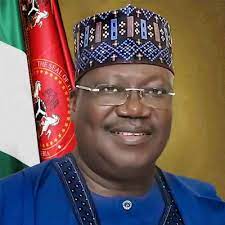
By Ola Awoniyi
Ahmad Ibrahim Lawan, the Distinguished Senator representing Yobe North Senatorial District of Yobe State, turns 64 on 12th January, 2023. Within those almost six and a half decades, he has seen it all, especially in public service. In just about five months from now, he will conclude his tenure as the 14th President of the Nigerian Senate and sixth consecutive session in the National Assembly.
Lawan has been around for so long in Abuja that it is easy to assume he was never elsewhere. Yet, his earliest work experience was in the academia, and it lasted long enough for him to bag a Doctorate degree in Remote Sensing and Geographic Information System (GIS) before yielding to the pull of partisan politics in 1998.
In that calling, Lawan has clearly made his mark. And not just because he attained the dizzying height of third in the order of succession. People see politics as a dirty game. But Ahmad Lawan does not see it that way. For him, politics should not change the core beliefs and principles of an individual. Service to the people should be the driving objective of partisan political practice. And whether in politics or elsewhere, Lawan believes one’s yes must mean yes.
This has, in no small measure, paid off for Lawan in his almost 25 years in politics, 24 of which has been as a federal lawmaker. A member of the pioneer class of the National Assembly of the Fourth Republic, he was first elected in 1999 to the House of Representatives from the Bade/Jakusko Federal Constituency of Yobe State. He was re-elected to the House in 2003. But in 2007, Lawan crossed over from the Green Chamber to the Red Chamber as the Senator for the Yobe North District. He was re-elected to that Senate seat in 2011, 2015 and 2019.
If you know what it takes to win elections in Nigeria, you would appreciate that what multiple winners like Lawan have accomplished is no small feat. His numerous reelections underscore that his constituents appreciate the quality of representation that he has been providing to them in Yobe North District.
The life of a politician is not all gloss as it may sometimes seem. Election is not a tea party. A parliamentarian in particular needs very hard work to get a return ticket from the party. In Parliament, getting the support of colleagues for motions and bills requires deep knowledge and passion for the subject; focus and temperament. It is actually an extra burden if you are a Presiding Officer in parliament. Success or failure at every stage has its implications.
No wonder, Mallam Nasir El Rufai, the outspoken Governor of Kaduna State, at a recent public function in Abuja, said he has no intention of seeking a seat in the National Assembly like many former governors now do.
Speaking as chairman at the second edition of the “Distinguished Parliamentarian Lecture” organised by the National Institute for Legislative and Democratic Studies(NILDS): the governor said:
“The Legislature is one branch of government I know I can never function. The hardwork needed to convince people to support even your motion is something some of us have no patience for. You know management in the Executive is very straightforward. It is very hierarchical and once you are a governor, your word is almost law. But in the Legislature, everybody is equal and there is no management that is more difficult than managing your equals. I don’t envy Mr Speaker and the Senate President at all because their job perhaps is the hardest job in this country. Managing equals is difficult.”
Despite the difficulties, Ahmad Ibrahim Lawan has shone at the National Assembly since its inauguration in 1999. Lawan is today one of only two lawmakers remaining in the National Assembly from the 1999 set. He has also attained the most enviable of heights in his many years of service at Parliament, becoming “first among equals” in the Upper Chamber, which is the very pinnacle of the hierarchy in the parliament of any democratic society. That makes him the Doyen of the Nigerian Parliament.
In his three and a half years as the 14th President of the Senate and Chairman of the ninth National Assembly, he has set a high standard for whoever will be his successors. He has demonstrated the value of parliamentary experience as a prerequisite for election as a presiding officer for the Upper Chamber.
His experience of more than two decades in parliament has made him an encyclopedia on the inner workings of the National Assembly. Lawan has the standing rules at the tip of his fingers. When any of his colleagues raises a Point of Order, he would ask the colleague to specify which order. But before the text is read out, Lawan already knows the provision and its applicability.
As “first among equals,” Lawan knows the importance of fairness in the conduct of the affairs in plenary. Even though the majority will always have its way, the minority must have its say as well.
Lawan knows the value of a bipartisan Legislature. Perhaps the most difficult aspect of the job of a Presiding Officer is to know when to hit the gavel and when not to. As one of Lawan’s aides, I heard him say, many at times, that he had no choice but to hit the gavel or rule in favour of a majority voice vote even when he held a different view to the voice vote. That is democracy.
Lawan also knows the value of promoting harmony between the Legislature and other arms of government, particularly the Executive, without compromising the independence of the Legislature.
Lawan has seen it all in Parliament. From my vintage point of observation, I quickly realized that he did not become the 14th President of the Senate and Chairman of the Ninth National Assembly by happenstance. It was the result of long years of self-preparedness, self-discipline, consistency, perseverance and tenacity of purpose.
Those attributes are essential for success in any endeavour and Lawan obviously learned that very early. And wherever he goes next, they will accompany him and pave the way for more success.
As I wish the Sardaunan Bade a happy 64th birthday, I also wish him more success in his future endeavours.
***Awoniyi is Special Adviser on Media to Senate President
Latest News
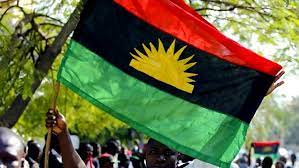

Appeal Court Affirms IPOB As Terrorist Group
ShareThe Court of Appeal in Abuja has affirmed the January 18, 2018 order by Justice Abdu Kafarati of the Federal...
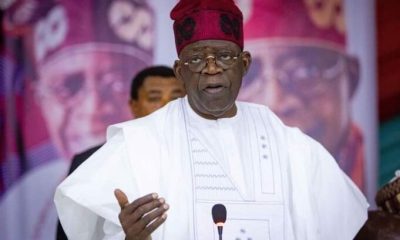

#EndSARS Movement Was Funded From US To Ambush Tinubu From Becoming President – Bisi Akande
ShareThe former interim National Chairman of the ruling All Progressives Congress (APC), has claimed that the #EndSARS movement was designed...


Court Grants Sowore ₦10m Bail
ShareThe judge gave him 24 hours to perfect the bail conditions or be remanded by the police until the bail...
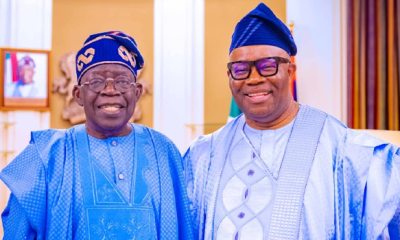

Nigeria Was On Life Support When Tinubu Assumed Office – Akpabio
ShareThe Senate President and Chairman of the 10th National Assembly, Senator Godswill Akpabio, has said the country was on a...


Dangote Refinery, Ardova Plc Strike Bulk Purchase Deal
ShareAs part of the measures to guarantee supply security of fuel at affordable prices for its customers, Ardova Plc, one...
